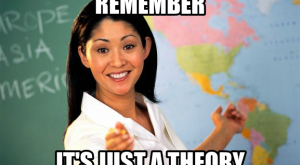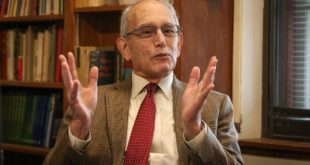In 2019 the age-adjusted death rate from an opioid overdose was 21.6 per 100,000 people. This compares with 12.9 for kidney disease, 14.2 from suicides, 14.7 for influenza, 21.6 from diabetes, and 161.5 from heart disease (the leading cause of death in the United States). Opioid overdose deaths place in the top 10 leading causes of death in the United States. As can been from Figure 1, prior to 2015 most of these opioid deaths arose from prescription (Rx) overdoses, but after that they came...
Read More »Deductivism — the original sin of ‘modern’ economics
For many people, deductive reasoning is the mark of science: induction – in which the argument is derived from the subject matter – is the characteristic method of history or literary criticism. But this is an artificial, exaggerated distinction. Scientific progress … is frequently the result of observation that something does work, which runs far ahead of any understanding of why it works. Not within the economics profession. There, deductive reasoning based on logical...
Read More »How to make good decisions in a radically uncertain world
How to make good decisions in a radically uncertain world .[embedded content] To understand real-world decisions and unforeseeable changes in behaviour, ergodic probability distributions are of no avail. In a world full of genuine uncertainty — where real historical time rules the roost — the probabilities that ruled the past are not necessarily those that will rule the future. Time is what prevents everything from happening at once. To simply assume that...
Read More »MMT and ‘monetary crankery’
MMT and ‘monetary crankery’ MMTists often like to position themselves as the only ones to properly understand the ‘operational realities’ of modern monetary systems. Ironically, many of the claims made by MMTists on this topic are misleading at best. One common rhetorical tactic that I’ve noticed they employ, which often catches their critics out, is to use the term ‘government’ in a way that’s different typically from how it is used in mainstream...
Read More »Stephen Marglin sur le besoin d’une nouvelle théorie économique
Stephen Marglin sur le besoin d’une nouvelle théorie économique Peut-on élaborer une nouvelle théorie économique qui permettra d’influencer les gouvernements actuels et futurs dans le sens du progrès, de la résolution des crises et de la recherche du bien-être collectif ? Oui, bien entendu, mais cela ne se fera pas en un jour. Nous devrons pour cela commencer par désapprendre les fondements de l’économie traditionnelle – le présupposé de l’individualisme,...
Read More »Förväxla inte samhällsekonomi med hushållsekonomi
Förväxla inte samhällsekonomi med hushållsekonomi Det er foruroligende, at to tidligere overvismænd, såkaldte ’topøkonomer’ Torben M. Andersen og Michael Svarer uden at ryste på hånden kan konkludere først i Jyllandsposten (20. juni, 2020) og dernæst uændret i Altinget så sent som 15. januar 2021 på følgende måde: ’Mindre brug af offentlige ressourcer i dag øger muligheden for større offentligt forbrug i fremtiden, og bidrager således til også at have et...
Read More »Paul Krugman and the power of folk economics
Paul Krugman and the power of folk economics And then there’s Paul Krugman who … has stumbled on folk economics. And I’ll give him credit, since the “folk” he refers to “needn’t be members of the working class. They can be, and often are, members of the elite: plutocrats, powerful politicians and influential pundits.” Absolutely! … But then he reverts to classic Krugman: mainstream economists get it mostly right, and all they really need is the “IS-LM...
Read More »Feltänk om statsskuld och budgetunderskott
.[embedded content] Ett av de grundläggande feltänken i dagens diskussion om statsskuld och budgetunderskott är att man inte skiljer på skuld och skuld. Även om det på makroplanet av nödvändighet är så att skulder och tillgångar balanserar varandra, så är det inte oväsentligt vem som har tillgångarna och vem som har skulderna. Länge har man varit motvillig att öka de offentliga skulderna eftersom ekonomiska kriser i mångt och mycket fortfarande uppfattas som förorsakad av för...
Read More »The Grossman-Stiglitz Paradox
In general the price system does not reveal all the information about “the true value” of the risky asset … The only way informed traders can earn a return on their activity of information gathering, is if they can use their information to take positions in the market which are “better” than the positions of uninformed traders. “Efficient Markets” theorists have claimed that “at any time prices fully reflect all available information” … If this were so then informed traders...
Read More »What causes inflation?
.[embedded content]
Read More » Heterodox
Heterodox





